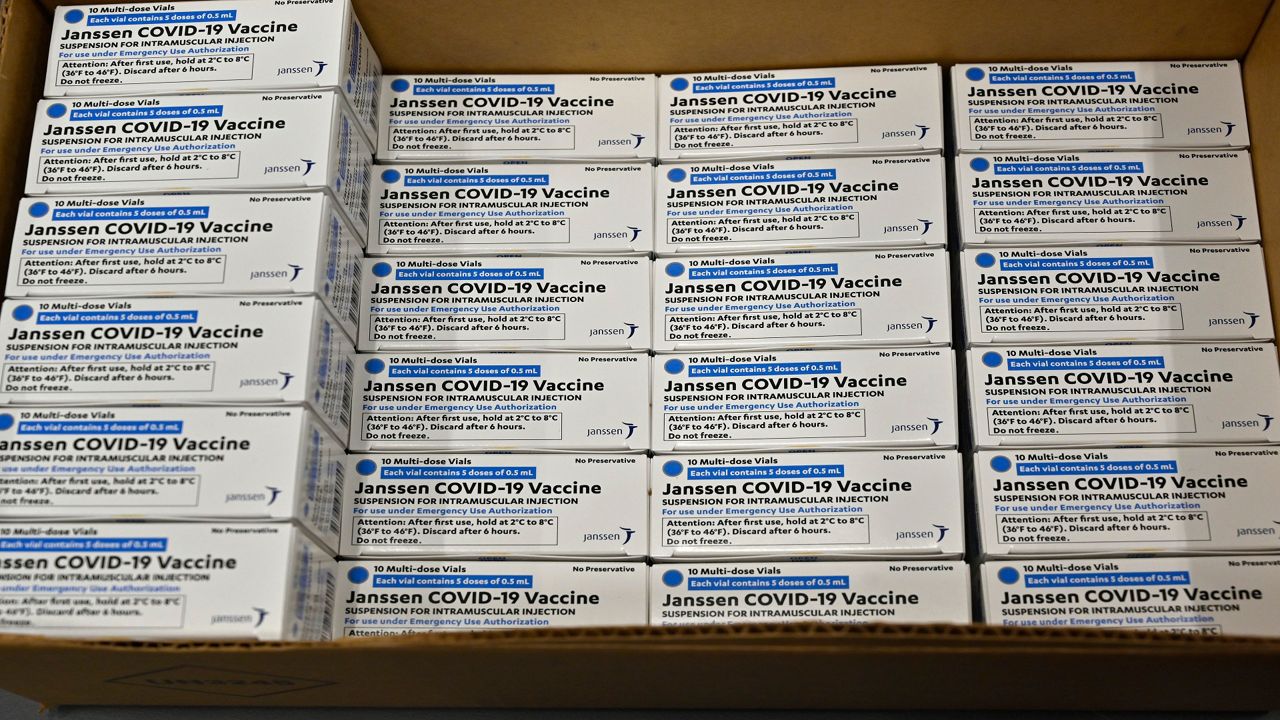LOUISVILLE, Ky. — Months after the first two COVID-19 vaccines were approved, the U.S. now has a third. And the vaccine from Johnson & Johnson is different from those made by Moderna and Pfizer in two key ways.
First, the J&J vaccine is administered in one, rather than two doses. And second, it can be stored at typical refrigeration temperatures, a departure from the ultra-cold temperatures needed to store the Pfizer and Moderna vaccines.
Combine those advantages with the simple supply boost the J&J vaccine provides and it’s a “game changer” for Kentucky, Gov. Andy Beshear said Wednesday.
Not only will the J&J vaccine allow for more vaccinations, it will make it easier to vaccinate hard-to-reach populations and historically disenfranchised groups. Some of the groups expected to benefit from the J&J vaccine include:
Everyone in Kentucky who has so far received a COVID-19 vaccination has been required to return several weeks later for a booster shot. The J&J vaccine will change that, making it a better option for people who may have a harder time making two appointments.
The Centers for Disease Control and Prevention said "state and local vaccine distribution plans should include strategies to bring vaccines to people experiencing homelessness, including homeless service sites like shelters, day programs, or food service locations.” In situations when a vaccine is being brought to someone, a one-dose regimen makes more sense.
That’s why Louisville will be deploying the J&J vaccine “initially on those transitory folks who are at high-risk, like our homeless population and others,” Dr. SarahBeth Hartlage, Louisville Metro Public Health Department & Wellness’s (LMPHDW) Interim Medical Director, said Tuesday.
One challenge that has emerged during the roll out of the COVID-19 vaccine is getting shots into rural communities. Kentucky has tried to address this by partnering with trusted independent pharmacies located in rural communities.
“Walgreens is a great partner, but it didn’t have sufficient coverage in rural Kentucky, so we advocated for the program to include independent pharmacies, too,” Gov. Andy Beshear said last month.
But it’s not just the lack of pharmacies that present challenges in rural settings. Last month, Lee County Judge-Executive Chuck Caudill told Spectrum News 1 “that the logistics of trying to give two doses and storing it at sub-zero temperatures is difficult” when many elderly patients live far from vaccination sires.
Again, the J&J vaccines presents solutions to those problems. In order to target the rural population, Gov. Beshear announced Monday that Kentucky’s first shipment of the J&J vaccine would be going to independent pharmacies and rural health centers.
Another group that has faced problems accessing COVID-19 vaccines is disabled people, who may have a hard time leaving home, or, in some cases, accessing the buildings where vaccinations are administered.
It’s the latest on a long list of “glaring inequities” for disabled people the pandemic has highlighted, said Bonnielin Swenor, director of the Johns Hopkins Disability Health Research Center.
But some local governments around the country are choosing to prioritize disabled people, especially those who are unable to leave their homes, with the one-dose J&J vaccine. The logistics of delivering one shot are far easier than delivering two weeks apart, officials said.
New York City Mayor Bill de Blasio announced this week that the J&J vaccine would go to homebound seniors. “Obviously, if you are a homebound senior, you can get it done in one shot, that makes a lot more sense,” he said. “You do not have the option of going out and getting your second shot.”
New Jersey Gov. Phil Murphy also said this week that his state will target “residents with disabilities … who we have to go get” with the J&J shot.
Trypanophobia is the fear of needles, which is fairly common in adults. A 2019 study showed that 16% of all adults and 27% of hospital employees have skipped a flu vaccination out of such fears. The same study said as many of half of all children may have trypanophobia.
For these people, a one-dose vaccine does not eliminate concerns, but it can reduce them, making them more likely to get vaccinated.
The mental health website Psycom published a list of strategies to overcome trypanophobia last year. It includes practicing deep breathing and meditation, and treating the injection site with a topical anesthetic.



